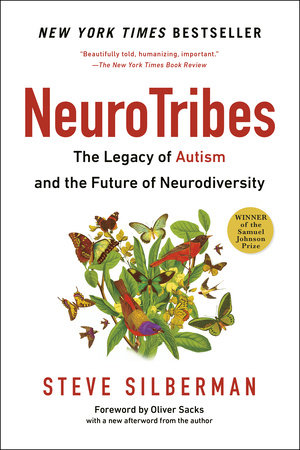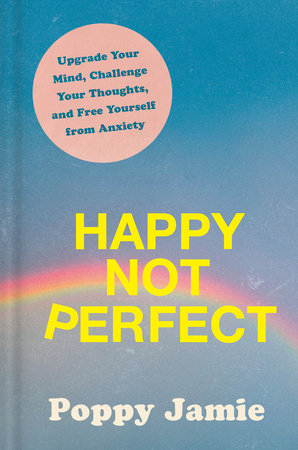Can neurodiversity proponents keep the notion of mental pathology?
YOU MIGHT ALSO LIKE
CLEAR ALL
BY TOPIC
BY TEACHER
BY TYPE
FILTER

TOPIC
- Talk Therapy (78)
- PTSD (65)
- ADD/ADHD (55)
- Anxiety (50)
- Identity (43)
- Trauma Healing (43)
- Relationship Challenges (39)
- Mental Health Challenges (38)
- Depression (37)
- Parenting (34)
- Children’s Well-Being (31)
- Communication Skills (30)
- Neuroscience (30)
- Self-Discovery (29)
- Child’s Autism (27)
- Honoring Emotion (27)
- Self-Development (27)
- Child’s ADD/ADHD (24)
- Romantic Relationships (23)
- Veteran Well-Being (23)
- Learning Styles (22)
- Belonging (21)
- Self-Care (20)
- Young Adult Well-Being (20)
- BIPOC Well-Being (19)
- Stress Management (19)
- Resilience (18)
- Self-Esteem (18)
- Trauma (18)
- Athlete Well-Being (17)
- Family Dynamics (17)
- Imagination and Creativity (17)
- Synesthesia (17)
- Connection (16)
- Habit Formation (16)
- Growth Mindset (15)
- Military to Civilian Re-entry (15)
- Anger (14)
- Emotional Intelligence (EQ) (14)
- Friendship (14)
- Highly Sensitive People (14)
- Post-Traumatic Growth (14)
- Black Well-Being (13)
- Child’s Emotional Growth (13)
- Self-Healing (13)
- Shame (13)
- Brain Health (12)
- Fear (12)
- Mind-Body Connection (12)
- Stress (12)
- Suicide (12)
- Authenticity (11)
- Confidence (11)
- Mindfulness (11)
- Negative Self-Talk (11)
- Offering Support to Others (11)
- Well-Being (11)
- Addiction (10)
- Awareness (10)
- Child’s Trauma (10)
- Dysfunctional Childhood (10)
- Goal Setting (10)
- Meditation (10)
- Mindfulness Practices (10)
- Positive Thinking (10)
- Psychology (10)
- Relationship with Time (10)
- Self-Acceptance (10)
- Setting Limits and Boundaries (10)
- Spiritual Growth (10)
- Women’s Well-Being (10)
- Cancer (9)
- Child’s Challenging Behavior (9)
- Cognitive Psychology (9)
- Criticism and Rejection (9)
- Finding Meaning (9)
- Habits of Mind (9)
- LGBTQIA Well-Being (9)
- Life Challenges (9)
- Racial Identity (9)
- Search for Purpose (9)
- Self-Limiting Beliefs (9)
- Self-Realization (9)
- Self-Reflection Practices (9)
- Self-Reliance (9)
- Social Anxiety (9)
- Social Presence (9)
- Chronic Anxiety (8)
- Entrepreneurship (8)
- Grief (8)
- Human Potential (8)
- Identity Shifts (8)
- Inner Peace (8)
- Marriage (8)
- Motivation (8)
- Physical Health (8)
- Self-Actualization (8)
- Self-Compassion (8)
- Self-Worth (8)
- Addiction Recovery (7)
- Caregiver Well-Being (7)
- Cognitive Behavioral Therapy (7)
- Consciousness (7)
- Courage (7)
- Creative Well-Being (7)
- Decision Making (7)
- Empowerment (7)
- Neuropsychology (7)
- Peak Performance (7)
- Self-Mastery (7)
- Vulnerability (7)
- Access to Education (6)
- Activism/Service (6)
- Child’s Anxiety (6)
- Collaboration (6)
- Community Healing (6)
- Compassion (6)
- Cross-Cultural Dynamics (6)
- Focus (6)
- Healing Approaches (6)
- Living as an Empath (6)
- Memoir (6)
- Memory (6)
- Neuroplasticity (6)
- Self-Pressure (6)
- Social Justice (6)
- Transformation (6)
- Work Challenges (6)
- Acceptance (5)
- Anger Management (5)
- Asking for Help (5)
- Challenges with Teens (5)
- Disabled Well-Being (5)
- Guilt (5)
- Happiness (5)
- Ketamine (5)
- Kindness (5)
- Latinx Well-Being (5)
- MDMA (5)
- OCD (5)
- Philosophical Approaches (5)
- Presence (5)
- Problem Solving (5)
- Productivity (5)
- Psychedelic Research (5)
- Self-Love (5)
- Speaking Your Truth (5)
- Visualization (5)
- Adaptability (4)
- Breathwork (4)
- Burnout (4)
- Connection with Nature (4)
- Curiosity (4)
- Eating Disorders (4)
- Empathy (4)
- Endurance (4)
- Failure (4)
- Fellowship and Community (4)
- Global Challenges (4)
- Gratitude (4)
- Intergenerational Trauma (4)
- Perception (4)
- Performance Anxiety (4)
- Positive Self-Talk (4)
- Psychology and Spirituality (4)
- Race and Gender (4)
- Racism (4)
- Self-Expression (4)
- Social Psychology (4)
- Spiritual Awakening (4)
- Trauma-Informed Therapy (4)
- Work Relationships (4)
- Yoga (4)
- AAPI Well-Being (3)
- Academic Struggles (3)
- Affirmations (3)
- Alcohol Addiction (3)
- Attachment Theory (3)
- Body Image (3)
- Body Positivity (3)
- Buddhism (3)
- Chronic Pain (3)
- Clinical Depression (3)
- Collective Trauma (3)
- Disconnection (3)
- EMDR (3)
- Fiction (3)
- Immigration and Assimilation (3)
- Inner Child (3)
- Inner Strengths (3)
- Intimacy (3)
- Journaling (3)
- Joy (3)
- Leadership (3)
- Loneliness (3)
- Mindfulness Meditation (3)
- Oneness (3)
- Panic Attacks (3)
- Performance Pressure (3)
- Positive Psychology (3)
- Psychedelic-Assisted Therapy (3)
- Racial Healing (3)
- Science and Spirituality (3)
- Self-Control (3)
- Sexual Assault or Abuse (3)
- Sleep Disorders (3)
- Social Responsibility (3)
- Somatic Practices (3)
- Spiritual Development (3)
- Spirituality and Health (3)
- Suffering (3)
- Transitions (3)
- Abandonment (2)
- Accepting Love (2)
- Animal Communication (2)
- Animal Connection (2)
- Archetypes (2)
- Autoimmune Disease (2)
- Biofeedback (2)
- Child Depression (2)
- Codependency (2)
- Diet and Nutrition (2)
- Discrimination (2)
- Divorce and Breakup (2)
- Doubt (2)
- Ecospirituality (2)
- Ego (2)
- Embodiment (2)
- Enlightenment (2)
- Exercise (2)
- Facing Own Death (2)
- Family Acceptance (2)
- Female Friendship (2)
- Forest Bathing (2)
- Forgiveness (2)
- Gender Identity (2)
- Genetics (2)
- Guided Imagery (2)
- Healthy Eating (2)
- Higher Calling (2)
- Holism (2)
- Hypnosis (2)
- Inner Life (2)
- Integrative Medicine (2)
- Intention (2)
- Jealousy/Envy (2)
- Kundalini Yoga (2)
- Letting Go (2)
- LGBTQIA Children (2)
- LGBTQIA Sexuality (2)
- Love (2)
- Manifestation (2)
- Motherhood (2)
- Near-Death Experience (2)
- Nightmares (2)
- Optimism (2)
- Othering (2)
- Racial Discrimination (2)
- Sexuality (2)
- Shadow (2)
- Situational Depression (2)
- Somatic Experiencing (2)
- Spiritual Life (2)
- Tibetan Buddhism (2)
- Time Management (2)
- Toxic Relationships (2)
- Transgender Well-Being (2)
- Traumatic Grief (2)
- Values (2)
- War (2)
- Wholeness (2)
- Willpower (2)
- Work Ethic (2)
- Work-Life Balance (2)
- Acupressure (1)
- Aging (1)
- AIDS (1)
- Altered States (1)
- Animal Welfare (1)
- Art Therapy (1)
- Bodywork (1)
- Building Culture (1)
- Bullying (1)
- Cannabis/CBD (1)
- Chronic Health Conditions (1)
- Cognition (1)
- Coming Out (1)
- Comparing Belief Traditions (1)
- Compassion Fatigue (1)
- Cross-Cultural Parenting (1)
- Dark Night of the Soul (1)
- Death and Dying (1)
- Despair (1)
- Digital Life (1)
- Domestic Abuse (1)
- Drug Addiction (1)
- Ego Dissolution (1)
- Energy Healing (1)
- Environmental Justice (1)
- Faith (1)
- Fatherhood (1)
- Female Empowerment (1)
- Following Bliss (1)
- Gaming Addiction (1)
- Generational Healing (1)
- Generosity (1)
- Goddess (1)
- Guided Meditation (1)
- Handling a Child’s Illness (1)
- Handling a Loved One’s Illness (1)
- Heartmath (1)
- Homophobia (1)
- Hope (1)
- Inspiration (1)
- Interdependence (1)
- Intuition (1)
- Judaism (1)
- Jungian Analysis (1)
- LGBTQIA Parents (1)
- LSD (1)
- Lucid Dreaming (1)
- Masculine/Feminine Dynamics (1)
- Men’s Well-Being (1)
- Mentoring (1)
- Microdosing (1)
- Misophonia (1)
- Moral Philosophy (1)
- Mythology (1)
- Narcissism (1)
- New Relationships (1)
- Non-Duality (1)
- Nutritional Medicine (1)
- Passion (1)
- Personality Disorders (1)
- Prayer (1)
- Pregnancy and Childbirth (1)
- Psychedelic Journey (1)
- Psychoanalysis (1)
- Psychological Approaches (1)
- Racial Justice (1)
- Raising Nonbinary Children (1)
- Regret (1)
- Rest (1)
- Ritual (1)
- Self-Discipline (1)
- Self-Harm (1)
- Shamanism (1)
- Shared-Death Experience (1)
- Sleep (1)
- Spiritual Healing (1)
- Spiritual Practices (1)
- Storytelling (1)
- Synchronicity (1)
- Tapping/EFT (1)
- The Unconscious (1)
- The Yips (1)
- Transcendental Meditation (1)
- Transpersonal Psychology (1)
- Trust (1)
- Unfulfilled Career (1)
- Visions and Hallucinations (1)
- Vitamin Supplementation (1)
- Wake-Up Calls (1)
- Yoga Nidra (1)
- Yoga Therapy (1)
- Youth Activism (1)
FILTER

TEACHER
- Andrew Solomon (5)
- Belleruth Naparstek (5)
- Lisa Feldman Barrett (5)
- Daniel Amen (4)
- Gabor Maté (4)
- Arielle Schwartz (3)
- Bessel van der Kolk (3)
- John Perry (3)
- Peter A. Levine (3)
- Terri Cole (3)
- Alan Watts (2)
- Brian Tracy (2)
- C. S. Lewis (2)
- Daniel Goleman (2)
- Daniel J. Siegel (2)
- Edward Tick (2)
- Jay Shetty (2)
- John Sarno (2)
- Karla McLaren (2)
- Ken Wilber (2)
- Martin Seligman (2)
- Rick Hanson (2)
- Ruby Wax (2)
- The Dalai Lama (2)
- Adriene Mishler (1)
- Alain de Botton (1)
- Amishi Jha (1)
- Andrew Weil (1)
- Biet Simkin (1)
- Blaise Aguirre (1)
- Brendon Burchard (1)
- Chip Conley (1)
- Chögyam Trungpa (1)
- Connie Zweig (1)
- David J. Wolpe (1)
- don Jose Ruiz (1)
- Eckhart Tolle (1)
- Elaine Aron (1)
- Elizabeth Lesser (1)
- Gangaji (1)
- Gary Craig (1)
- Gary Zukav (1)
- Gordon Neufeld (1)
- Harriet Lerner (1)
- Hyla Cass (1)
- Iskra Lawrence (1)
- James Doty (1)
- Jan Willis (1)
- Jana Long (1)
- Judith Blackstone (1)
- Kristin Neff (1)
- Leah Guy (1)
- Lindo Bacon (1)
- Lise Van Susteren (1)
- Lodro Rinzler (1)
- Lori Gottlieb (1)
- Mark Nepo (1)
- Mary Pryor (1)
- Mihály Csíkszentmihályi (1)
- Nadine Burke Harris (1)
- Nicole LePera (1)
- Oliver Sacks (1)
- Paramahansa Yogananda (1)
- Pema Chödrön (1)
- Philip Goldberg (1)
- Piero Ferrucci (1)
- Poppy Jamie (1)
- Ralph De La Rosa (1)
- Rick Doblin (1)
- Rudolph Ballentine (1)
- Russell Brand (1)
- Shakti Gawain (1)
- Stanley Krippner (1)
- Stephanie Y. Evans (1)
- Steven Kotler (1)
- Tony Gaskins Jr. (1)
- William Bloom (1)
- Yongey Mingyur Rinpoche (1)









